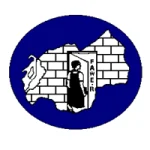IUCN is a membership Union composed of both government and civil society organisations.
Website: https://www.iucn.org/de
Terms of Reference : Improving existing knowledge and information systems for effective informed decision making for Climate Resilience in Rwanda
1. Background
Transforming the Eastern Province through Adaptation is a six-year project, designed by IUCN in collaboration with the Ministry of Environment (MoE), Rwanda Forestry Authority (RFA), Belgian Development Agency (ENABEL) and other partners, and funded by the Green Climate Fund (GCF) since 2021. The project is in line with the current IUCN ESARO programming composed of a suite of mutually interrelated programs and projects designed to address some of the most profound challenges affecting people and nature in the region. The TREPA Project intends to restore 60,000 hectares of drought-degraded landscapes into climate resilient ecosystems through re-forestation, agroforestry, restoration of pasturelands, and soil erosion control measures in the Eastern Province of Rwanda.
In addition, irrigation infrastructure projects in the targeted landscapes of the eastern province will be climate-proofed by the TREPA Project. The 6 years Project is implemented by IUCN (accredited entity) together with the Rwanda Forestry Authority and Enabel as executing entities, in partnership with Center for International Forestry Research and World Agroforestry (CIFOR-ICRAF), World Vision, and CORDAID. The project’s objective is to achieve a paradigm shift in land management practices in Rwanda’s Eastern Province from landscapes that are degraded, fragile and unable to sustain livelihoods in the face of climate change to restored ecosystems and landscapes through building community resilience to enhance livelihoods, food and water security of the most vulnerable rural population. The project components and outcomes that will result in the achievement of this objective are:
Outcome 1: A shift to farming practices that build resilience against climate threats and risks. Outcome 2: Strengthened adaptive capacity and reduced exposure to climate risks.
Outcome 3: Strengthened institutional and regulatory systems for climate-responsive planning and development.
To achieve the three outcomes, the project is pursuing an integrated resilience approach that is adaptive and able to support transformation and innovative processes. Degraded and climate sensitive landscapes will be transformed by adaptive land management practices and technologies to build resilience of agro-ecological systems and livelihoods. Three main projects components will be considered.
Component 1: Restored landscapes that support climate resilient agro-ecological systems and livelihoods in Eastern Province
Component 2: Market and value chain development for climate resilient agricultural and tree products linked to financial products and services for sustainable management of agro-ecological systems.
Component 3: Strengthened enabling environment to effectively plan, manage and monitor climate adaptation outcomes from improved land use at national and decentralized levels.
Under Component 3, IUCN leads the improvement of the existing knowledge and information systems to ensure effective integration of climate risk related data to support informed decision making. The systems that might be checked on include but not limited to the following:
- RBIS (Rwanda Biodiversity Information System), for the registration and monitoring of data related to biodiversity in Rwanda (hosted by Center of Excellence in Biodiversity and Natural Resource Management (CEoB) under development in context of Reducing climate change vulnerability through Community-based Biodiversity Conservation (COMBIO) project.
- Rwanda Forestry Authority (RFA) Forest Monitoring and Evaluation System (FMES)
- National Meteo database
- LAIS (Land Administration and Information System)
- National Spatial Agency remote sensing analysis data
- Rwanda Soil Information Services (RwaSIS) database developed by Rwanda Agriculture Development Board (RAB)
- Tree Tracking system developed by Rwanda Forestry Authority (RFA).
- Tree Finder and Regreening Africa Mobile application developed by ICRAF,
It is from the above background that IUCN is looking for a competent Individual Consultant or Consultancy Firm to Support the Improvement existing knowledge and information systems for effective informed decision making for Climate Resilience in Rwanda
1.1 Purpose of Consultancy
Under the Direct supervision of the GIS and Knowledge Management Officer, the Consultant/Consultancy Firm will carry out a gap analysis and determine both technical and financial need assessment to improve access to knowledge and information by the beneficiaries and stakeholders of TREPA Project.
1.2 Specific Objectives
Specifically, the Consultant/Consultancy Firm will:
- Consult project partners and carry out Literature review of common climate resilience indicators being monitored in the existing knowledge and information systems on climate resilience in Rwanda.
- Conduct a gap analysis on the status of knowledge and information systems in terms of climate resilience indicators in Rwanda.
- Determine the needs (technical and financial) to update and improve the knowledge and information systems to support climate resilience in Rwanda.
- Convene a workshop with partners to discuss how to improve and where necessary, establish/suggest synergies between the existing information platforms to ensure effective integration of climate risk related data to support decision making in Rwanda.
- Conduct a training need assessment on the knowledge and information systems to support climate resilience and potential training beneficiaries.
2. Deliverables
The consultant/ Consultancy firm is expected to deliver the following:
|
No. |
Deliverable (s) |
Deliverable content |
Timeline |
|
1 |
Inception Report |
Understanding of the ToR, planned assignment plan, detail methodology and timelines. |
10 days from contract signatures |
|
2 |
Draft Report |
Gap analysis report on knowledge and information systems Needs assessment report for technical and financial assistance for improving knowledge and information systems for climate resilience. Workshop convened to discuss how to improve and where necessary, establish/suggest new synergies between the existing information platforms to ensure effective integration of climate risk related data to support decision making in Rwanda. |
30 days after Inception Report Approval |
|
3 |
Final Report |
Final Report |
5 days after Draft Report approval |
3. Requirements
The International/Local consultant is expected to be experienced and conversant with knowledge sharing and information management and climate risk reporting systems/tools. The following are the skills and experience that the consultant should possess to be awarded the consultancy.
- Advanced Degree in Climate Change, climate change risk modelling, Vulnerability and Resilience assessment, Environmental Information System/Management, Climate Change Modelling, Environmental Science/Studies, Agricultural Sciences, or any other related field of studies
- Working experience (10-15 years) in areas related to Climate Change, climate change risk modelling, Vulnerability and Resilience assessment, information sharing and knowledge management in landscape restoration, gap analysis and capacity building.
- Proof of having conducted similar assignments (3-5 certificates of good completion)
- Having experience in conducting in person and online surveys using Kobo Box, ODK, etc.
- Good reporting and communication skills in Kinyarwanda, English and/or French
- Excellent attention to detail, with the ability to undertake repetitive tasks accurately and consistently.
- Willingness and ability to work in rural areas and including areas with challenging terrain.
4. Competencies
- Transparency: Able to build trust and contribute to informed and responsible decision making by carrying out the work of IUCN in a transparent manner; provides clear guidance to ensure that objectives and desired measurable results are understood by members of the team.
- Inclusiveness: Understands and accepts cultural diversity, and provide a tolerant, positive, and supportive working environment that fosters respect for diversity, demonstrates ability to work in a multicultural environment and to maintain effective working relations with people of different cultural backgrounds.
- Professionalism: Promote the organization’s interests, objectives, and values in a diligent and professional manner.
- Accountability: Takes responsibility of individual and collective actions, promotes the IUCN One Program approach.
5. Evaluation of Proposals
Technical
|
No |
Technical Criteria |
Marks |
|
1 |
Required/relevant degree |
30 |
|
2 |
Working experience (5-10 years) in areas related to Climate Change, climate change risk modelling, Vulnerability and Resilience assessment, information sharing and knowledge management in landscape restoration, gap analysis and capacity building. |
30 |
|
3 |
Proof of having conducted similar assignments (3-5 certificates of good completion) |
30 |
|
4 |
Experience in conducting survey using Kobo Collect, ODK, Online Surveys and Reporting |
10 |
|
TOTAL |
100 |
|
Financial
Bidders are required to submit financial proposals which are fixed and firm price for the provision of the goods/services. The financial evaluation will be based upon the full total price you submit. Your financial proposal will receive a score calculated by dividing the lowest financial proposal that has passed the minimum quality thresholds (see Section 5.2.2) by the total price of your financial proposal.
Overal Score
The total score for each proposal will be calculated as the weighted sum of your technical score and your financial score.
The relative weights will be:
Technical: 70%
Financial: 30%
How to Apply
Currently running tenders | IUCN
Deadline: June 14th, 2024




